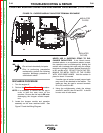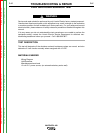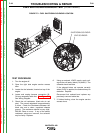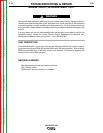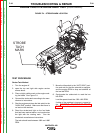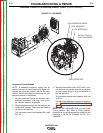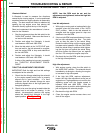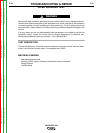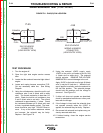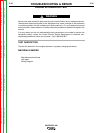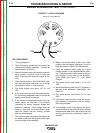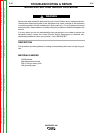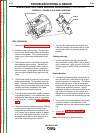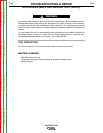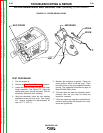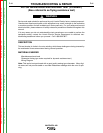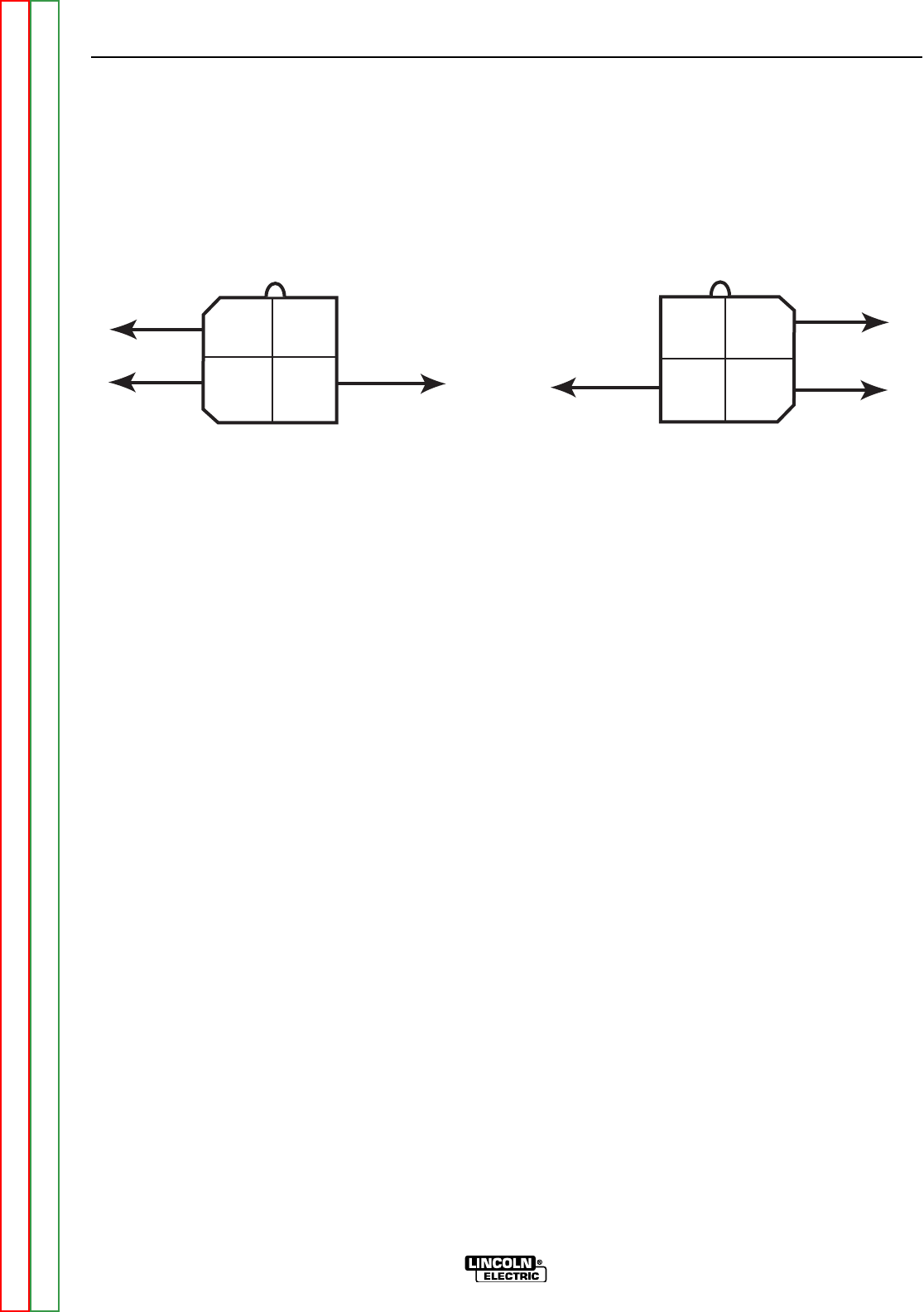
BLACK
RED
P-55
J-55
IDLE SOLENOID
CONNECTOR
(LEAD ENTRY VIEW)
IDLE SOLENOID
WIRING HARNESS
CONNECTOR
(LEAD ENTRY VIEW)
1
3
2
4
WHITE
PULL
3
1
4
2
226
232L
227
ENGINE PROTECTION
IDLE CONTROL P.C.B.
12 VOLT + RUN
ENGINE PROTECTION
IDLE CONTROL P.C.B.
COMMON
HOLD
FIGURE F.6 - PLUG(S) PIN LOCATION
IDLER SOLENOID TEST (CONTINUED)
TEST PROCEDURE
1. Turn the engine off.
2. Open the right side engine service access
door.
3. Locate the idler solenoid mounted right side of
engine.
4. Locate and unplug harness connection P-55.
Cut any necessary cable ties. See Wiring
Diagram.
5. Using the volt/ohmmeter, check the pull-in coil
resistance, pins 3 and 4 (black wire to white
wire). The normal resistance is less than 0.2
ohms. Check the hold-in coil resistance, pins
3 and 2 (black wire to red wire). The normal
resistance is approximately 11 ohms. Check
the resistance between pin 3 (black wire) and
a clean, unpainted chassis ground. The resis-
tance should be very high. 500,000 Ohms or
more. If any of the above resistance values
are incorrect, the solenoid may be faulty.
Replace. See Figure F.6.
6. Using the external 12VDC supply, apply
12VDC to the pull-in coil leads at pins 3+ and
4- (black wire to white wire). The solenoid
should activate. REMOVE THE VOLTAGE
IMMEDIATELY to avoid damage to the unit.
Apply 12VDC to the hold-in coil at pin #3 (black
wire +) and pin #2 (red wire -). While the volt-
age is applied, manually move the solenoid to
the low idle position. The solenoid plunger
should hold this position until the voltage is
removed. See Figure F.6.
7. If either coil does not operate as described,
check for mechanical restrictions or other prob-
lems with the linkage.
8. If the linkage is intact and the solenoid does
not operate correctly when the 12VDC is
applied, the solenoid may be faulty. Replace.
9. Re-connect idle solenoid and replace any pre-
viously removed cable ties.
10. If finished testing, close the engine service
access door.
TROUBLESHOOTING & REPAIR
F-34 F-34
VANTAGE® 400
Return to Section TOC Return to Section TOC Return to Section TOC Return to Section TOC
Return to Master TOC Return to Master TOC Return to Master TOC Return to Master TOC



